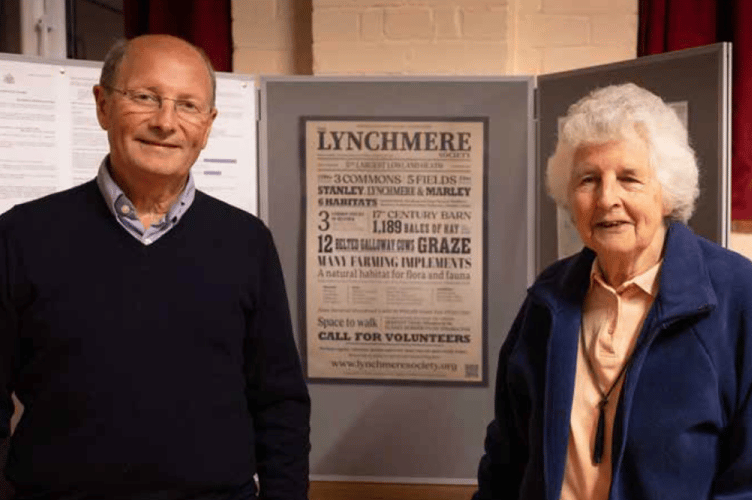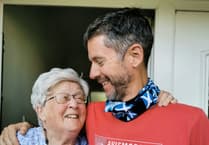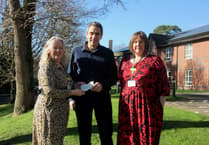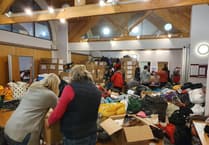The Lynchmere Society heard a fascinating talk from National Trust ranger Dave Elliott on the challenges and potential solutions for our local waterways and wetlands.
Dr Christopher Tibbs, on behalf of the members, thanked retiring president Lady Judy Rous through an adapted libretto of Gilbert and Sullivan’s Pirates of Penzance:
“She is the very model of a modern conservationist
“In matters ecological, a keen environmentalist.”
He concluded:
“So Judy is retiring as the chair of this society,
“Join me to wish her happiness and absence of anxiety.
“We thank you now for all you’ve done,
“Your contribution will be so much missed.
“You are the living model for Lynchmere conservationist.”
Lady Judy, who had been chair for nine years, said was delighted with the injection of new talented trustees with expertise in land and habitat management, finance, digital marketing and membership as well as a new chair in Mike McCart, who has lived on Marley Common for more than 35 years.
The society thanked retiring trustee Richard Appleby for his many years of support as well as recognising the exceptional efforts of Gareth Hopkins, chairman of the Cow Club, and ongoing energy and enthusiasm of the other trustees, Bruce Middleton, Ian Russell, David Knapp and Louise and Peter Searight.
A special mention was made of the dedicated volunteering of Mark Allery and Chris Pooley.
In his talk on our local waterways and wetlands, NT ranger Dave Elliott said we were very fortunate to be in the catchment of three rivers: the Wey, the Rother and the Arun.
The bad news was the damage being done by Southern and Thames Water Boards in spilling raw sewage, so often outside storm period, stimulating the growth of algae which uses up the oxygen causing the fish to die as well as killing native water plants.
He urged everyone who sees solid raw sewage in our rivers to report it to the Environment Agency.
The good news is the reintroduction of water voles, beavers, otters and migrating eels in our rivers.
He also explained the work the National Trust were doing at Woolbeding to restore the health of the river and its flood plain which would enable species recovery.
To know more about The Lynchmere Society, email Mike McCart at [email protected]




